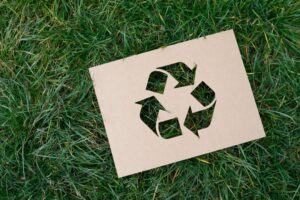Waste management is not simply an environmental necessity, it also plays a vital role in business strategies and success. Companies who embrace innovative waste processes not only reduce their ecological footprint but also enhance operational efficiency and profitability. From recycling initiatives to waste minimization strategies, let’s look at various waste practices that can propel your company toward a more sustainable future.

Understanding Waste Management
Waste management refers to the collection, treatment and disposal of waste materials. Implementing effective processes can result in cost savings, enhanced brand image and compliance with regulatory requirements. As well as creating a culture of sustainability within their business that resonates with both customers and stakeholders alike.
Waste Audits: The First Step to Improvement
Before initiating any waste process, it’s vital to conduct a comprehensive waste audit. This involves carefully reviewing your current waste streams to understand what they contain and where it originates. You may gather data such as percentages across organic, recyclable and hazardous categories. Understanding your composition of waste can help identify areas for improvement while supporting more informed decision-making processes.
Recycling: Converting Waste into Resources
Recycling can be one of the most cost-effective waste processes businesses can implement, diverting materials away from landfills while creating new products out of recycled ones. Implementing a recycling program not only benefits the environment but can lead to significant cost savings through reduced disposal fees. Partners with local recycling firms for efficient sorting and processing or create an in-house team dedicated to spreading awareness of recycling initiatives among employees are all great ways of supporting recycling initiatives within your workplace.
Waste Minimization: Less is More
Waste minimization involves reducing the amount of waste created in the first place through redesigning products to use fewer materials, adopting more efficient manufacturing techniques, or developing closed-loop recycling systems that reuse materials. As well as saving costs, minimizing waste fosters creativity, encourages sustainable practices, and strengthens a company’s commitment to environmental stewardship.
Composting: Nature’s Recycling System
Composting is an effective way of managing organic waste while enriching soil. This waste process involves collecting biodegradable materials (including food scraps, yard waste and paper products) and allowing them to decompose naturally in a controlled environment. Businesses such as cafeterias or landscaping operations can particularly benefit from composting since not only does it divert organic waste from landfills but it also creates valuable compost that can be sold or used directly on landscape projects, creating additional revenue streams.
E-Waste Recycling: Tackling Technology’s Footprint
As technology evolves, e-waste has become a significant challenge for businesses. Electronic devices like computers, printers and smartphones contain harmful materials that could impact the environment if improperly discarded. Establishing an e-waste recycling program enables businesses to ensure their electronics are processed and recycled responsibly, as well as promote brand recognition of responsible technology disposal through certified recyclers. Not only does e waste disposal help preserve natural resources by recycling electronics but its also environmentally responsible.
Conclusion
Implementing effective waste processes isn’t just a smart business move, it’s important. Businesses can enhance their sustainability efforts while reaping economic advantages. Be mindful that your journey towards efficient waste processes is an ongoing journey: regularly assess practices and stay updated with new technologies and methods as you strive for improvement. Your business will not only thrive but leave an enduring legacy that future generations will appreciate.



